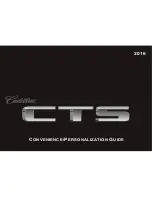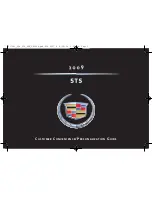
The suggested rotation method is shown in the following
diagram.
TIRE PRESSURE MONITORING SYSTEM (TPMS)
The TPMS will warn you of a low tire pressure based on
the vehicle recommended cold placard pressure.
The tire pressure will vary with temperature by about
1 psi (7 kPa) for every 12°F (7°C). This means that when
the outside temperature decreases, the tire pressure will
decrease. Tire pressure should always be set based on
cold inflation tire pressure. This is defined as the tire
pressure after the vehicle has not been driven for at least
three hours, or driven less than 1 mile (1.6 km) after a
three-hour period. The cold tire inflation pressure must
not exceed the maximum inflation pressure molded into
the tire sidewall. Refer to “Tires – General Information”
in “Starting and Operating” for information on how to
properly inflate the vehicle’s tires. The tire pressure will
also increase as the vehicle is driven - this is normal and
there should be no adjustment for this increased pres-
sure.
TPMS will warn you of a low tire pressure if the tire
pressure falls below the low-pressure warning limit for
any reason, including low temperature effects and natu-
ral pressure loss through the tire.
Tire Rotation
266
STARTING AND OPERATING
Summary of Contents for Cruiser PT 2010
Page 2: ......
Page 5: ...INTRODUCTION 5 ...
Page 8: ......
Page 76: ......
Page 107: ...3 UNDERSTANDING THE FEATURES OF YOUR VEHICLE 107 ...
Page 108: ...108 UNDERSTANDING THE FEATURES OF YOUR VEHICLE ...
Page 109: ...3 UNDERSTANDING THE FEATURES OF YOUR VEHICLE 109 ...
Page 173: ...INSTRUMENT CLUSTER BASE 4 UNDERSTANDING YOUR INSTRUMENT PANEL 173 ...
Page 174: ...INSTRUMENT CLUSTER PREMIUM 174 UNDERSTANDING YOUR INSTRUMENT PANEL ...
Page 217: ...Operating Tips Operating Tips 4 UNDERSTANDING YOUR INSTRUMENT PANEL 217 ...
Page 220: ......
Page 256: ...256 STARTING AND OPERATING ...
Page 350: ......
Page 370: ......
Page 381: ...INDEX 10 ...
















































